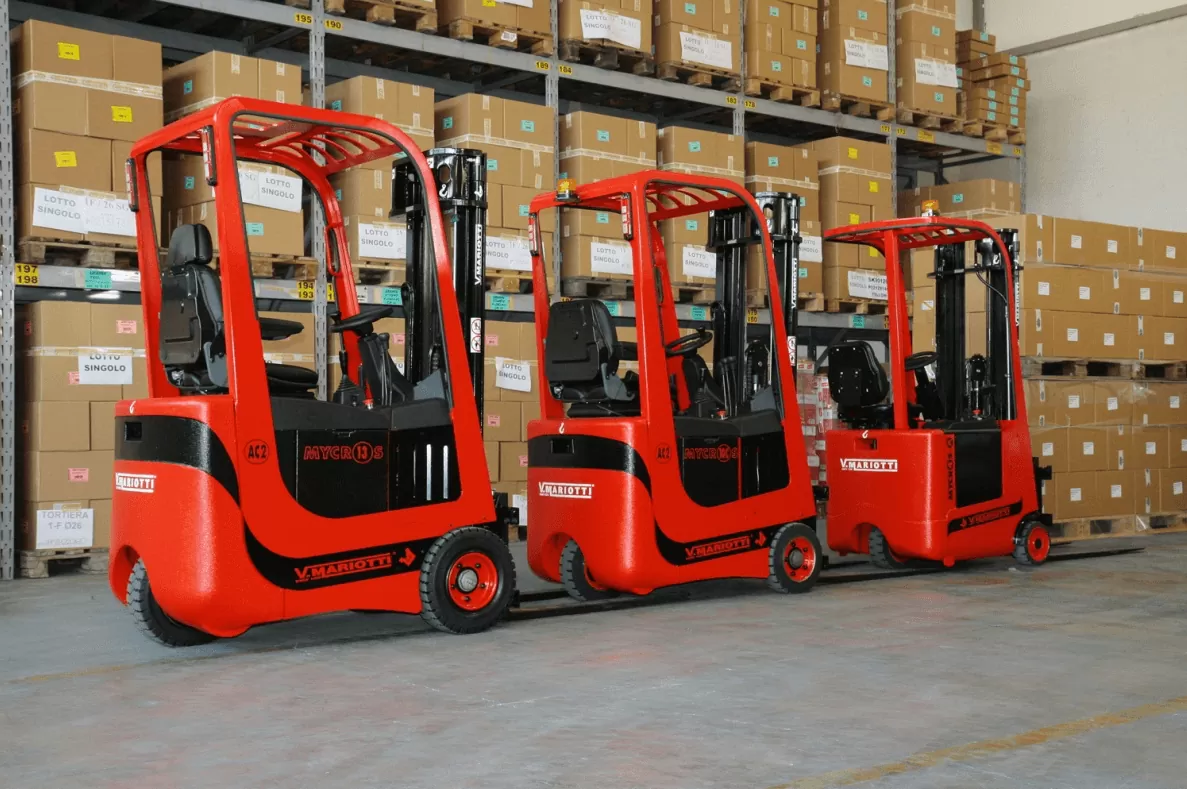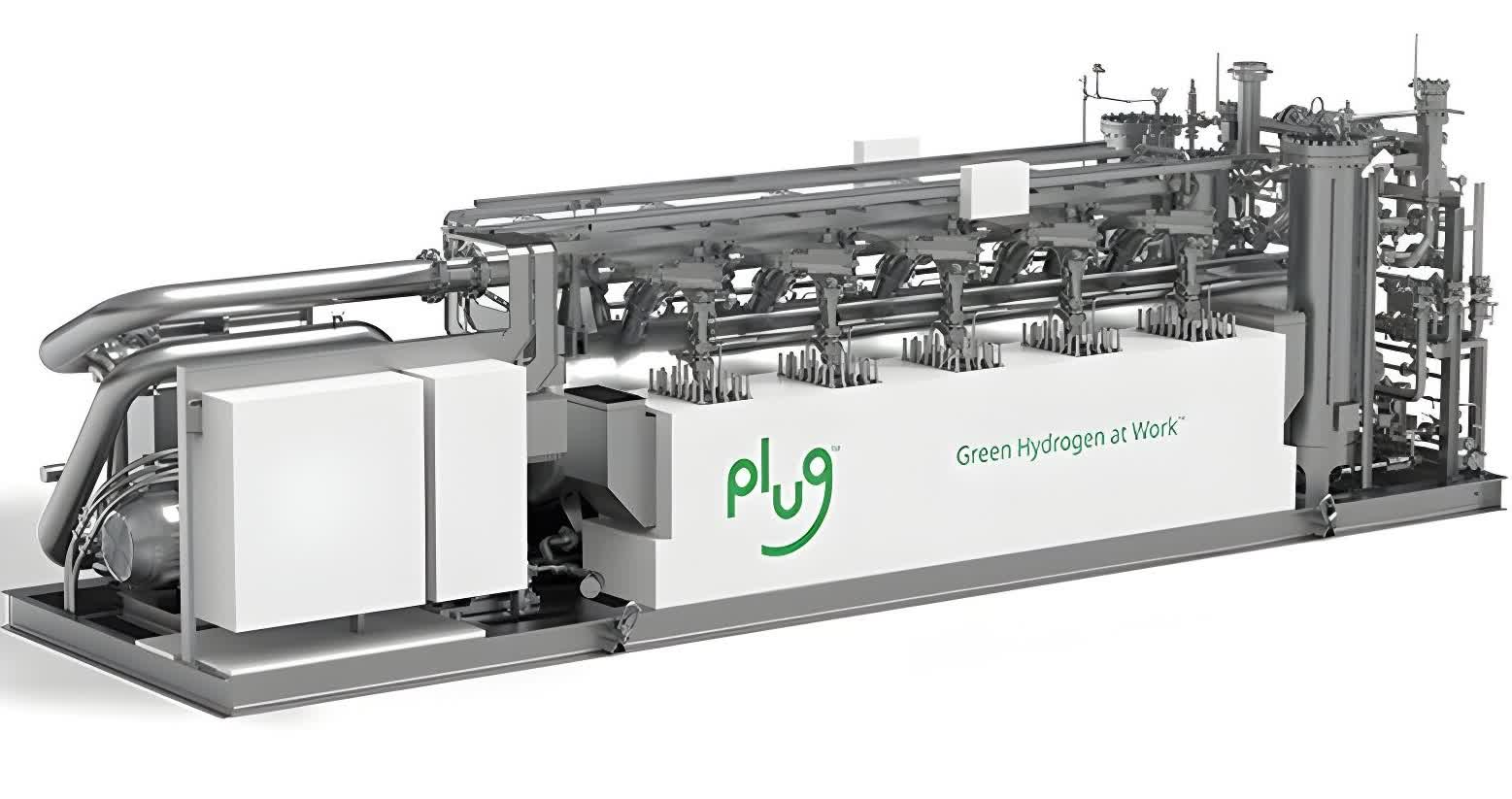In context: Amazon's push to go green is continuing with the use of hydrogen fuel. The retail giant will be producing the fuel at its fulfillment centers, as opposed to having it transported to the locations, where it will be used to power the facilities' forklift trucks.

Amazon says it partnered with hydrogen company Plug Power to install the first electrolyzer, a piece of equipment that can split water molecules to produce hydrogen, at a fulfillment center in Aurora, Colorado.
Amazon writes that the one-megawatt proton exchange membrane electrolyzer is producing low-carbon hydrogen to fuel more than 225 hydrogen fuel cell-powered forklift trucks at the site, though the device can support up to 400 of the vehicles.
The hydrogen produced by the electrolyzer (below) will be compressed on site and stored in a gaseous hydrogen storage tank for use by the forklift trucks, Amazon explained.
Plug's collaboration with Amazon has already resulted in the deployment of more than 17,000 fuel cells to replace batteries in forklifts across more than 80 fulfillment centres in North America. In most cases, the hydrogen to power the forklifts is produced elsewhere and delivered by trucks to an on-site storage/dispensing system. Producing the fuel at the facility removes the need to transport it.
Amazon is pushing its partnership with Plug as a major element in its efforts to reach net-zero carbon by 2040. Back in June, Amazon workers around the globe took part in a walkout to protest its controversial return-to-office mandate, the massive number of layoffs, and their displeasure at Amazon's impact on the environment. Workers stated that the firm was failing to meet its self-imposed goals of reaching zero emissions by the end of the next decade. Amazon's global fleet of transportation vehicles, which includes planes, has a huge carbon footprint.
The Verge writes that hydrogen produces water vapor during combustion, but making it usually requires the use of fossil fuels. This is mostly achieved through a reaction between steam and methane, a process that releases carbon dioxide.
Plug's electrolyzers use electricity to split water into hydrogen and oxygen, rather than using methane. If this method uses electricity generated by renewable sources, it's called green hydrogen. But the electrolyzer is plugged into the power grid, meaning that some of the electricity it uses still comes from fossil fuels.
